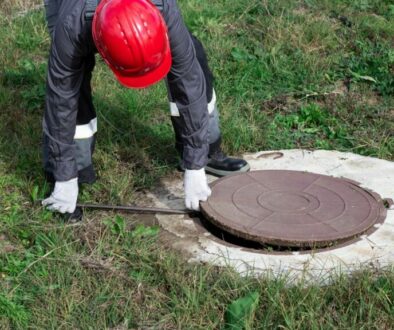How To Become A Weatherman?
Have you always been fascinated by the weather? Do you enjoy analyzing meteorological data and forecasting the conditions that will impact our daily lives? If so, you may be interested in becoming a weatherman, also known as a meteorologist. In this article, we will provide you with valuable information on how to achieve your dream job, including the steps involved, the skills required, and the benefits of working as a weatherman.
Steps To Becoming A Weatherman
Becoming a weatherman requires a combination of education and experience. Weathermen are responsible for predicting and reporting on weather conditions, including temperature, precipitation, wind, and atmospheric pressure, which can have a significant impact on people’s lives and livelihoods. If you have a passion for meteorology and want to pursue a career as a weatherman, below are the general steps involved:
- Obtain a Bachelor’s Degree
A bachelor’s degree in meteorology, atmospheric science, or a related field is the first step in pursuing a career as a weatherman. Meteorology is a challenging field that requires a strong foundation in math, physics, and computer science. You will also need to have excellent communication skills to convey complex weather information to the public in a clear and concise manner.
- Gain Experience Through Internships and Extracurricular Activities
Hands-on experience is crucial for landing a job as a meteorologist. Look for opportunities to participate in internships, research projects, and volunteer activities related to weather and climate. For example, you could volunteer at a local weather station, participate in a weather balloon launch, or assist with a research project on climate change. This will not only help you build your resume but also give you a chance to network with professionals in the field.
- Consider a Graduate Degree
A graduate degree in meteorology or atmospheric science may be required for some advanced positions. This will also increase your chances of standing out in a competitive job market and allow you to specialize in a specific area of meteorology. Some areas of specialization include severe weather forecasting, climate modeling, and air quality analysis.
- Apply for Entry-Level Positions
Once you have completed your education and gained some experience, it’s time to start applying for entry-level positions in meteorology. Look for opportunities at TV and radio stations, private sector businesses, and government agencies. Entry-level positions may involve working as a weather observer, forecaster, or technician.
- Continue Learning and Advancing Your Career
Meteorology is a constantly evolving field, and it’s essential to stay up-to-date with the latest advancements and technologies. Consider attending conferences, workshops, and training programs to continue learning and advancing your career. You could also pursue professional certifications, such as the Certified Broadcast Meteorologist (CBM) credential offered by the American Meteorological Society (AMS).
Overall, becoming a weatherman requires a combination of education, experience, and a passion for meteorology. By following these steps, you can pursue a rewarding career as a weatherman and help keep people safe and informed about the weather conditions in their area.
Skills Needed For Becoming A Weatherman
In addition to formal education and experience, a successful meteorologist also possesses the following skills:
- Strong Analytical Skills The ability to interpret complex data and identify meaningful patterns is essential for a meteorologist.
- Excellent Communication Skills Meteorologists must be able to communicate their findings clearly to the public and other professionals. Strong writing and speaking skills are a must.
- Attention to Detail Small changes in weather patterns can have significant impacts, which is why meteorologists must be highly detail-oriented.
- Adaptability Weather can be unpredictable, and meteorologists must be able to adjust their plans and forecasts quickly.
- Computer Proficiency Meteorologists rely heavily on technology to gather and analyze data, so proficiency in computer programming and software is necessary.
Being a meteorologist is not just about analyzing data and making forecasts. It is also about being able to communicate these forecasts to the public in a way that is easy to understand.
Excellent communication skills are essential for a meteorologist, as they must be able to explain complex weather patterns to the general public. They must also be able to communicate with other professionals in the field, such as climatologists and atmospheric scientists.
Attention to detail is another crucial skill for a meteorologist. Weather patterns can change quickly, and even small changes can have significant impacts. Meteorologists must be able to pick up on these changes and adjust their forecasts accordingly.
Adaptability is also essential for a meteorologist. Weather can be unpredictable, and meteorologists must be able to adjust their plans and forecasts quickly. They must be able to think on their feet and make decisions quickly.
Finally, computer proficiency is necessary for a meteorologist. They rely heavily on technology to gather and analyze data, so proficiency in computer programming and software is necessary. Meteorologists must be able to use a variety of software programs to analyze data and create forecasts.
Becoming a meteorologist requires a combination of formal education, experience, and a variety of skills. A successful meteorologist must possess strong analytical skills, excellent communication skills, attention to detail, adaptability, and computer proficiency. If you have a passion for weather and possess these skills, a career as a meteorologist may be right for you.
What Is A Weatherman?
A weatherman, also known as a meteorologist, is a professional who studies and forecasts the weather. Meteorologists use a wide range of tools and technologies, including satellites, weather balloons, and computer models, to gather information on atmospheric conditions and make predictions about future weather patterns.
Weathermen work in a variety of settings, including government agencies, private sector businesses, TV and radio stations, and research institutions. Some specialize in specific areas of meteorology, such as severe weather forecasting, aviation weather, or climate research.
The Benefits Of Working As A Weatherman
Working as a weatherman is an exciting and fulfilling career choice that offers a range of benefits. Not only do you get to help people prepare for and respond to weather-related disasters, but you also get to be at the forefront of a constantly evolving field. Here are some additional benefits to working as a weatherman:
- Flexibility – Weathermen often have flexible schedules, which can be ideal for those who want to balance work with other commitments, such as family or hobbies. Additionally, many weathermen have the option to work remotely, which can be a huge advantage for those who prefer to work from home.
- Travel Opportunities – As a weatherman, you may have the opportunity to travel to different parts of the country or even the world to cover major weather events. This can be an exciting and rewarding experience, allowing you to see new places and meet new people.
- Job Diversity – Weathermen can work in a variety of settings, including private companies, government agencies, and media outlets. This means that there are many different career paths available, depending on your interests and goals.
- Chance to Make a Difference – Weathermen play a crucial role in helping people prepare for and respond to weather-related emergencies. By providing accurate and timely forecasts, you can help save lives and protect property.
Whether you are just starting your career or looking to make a change, working as a weatherman can be a smart and rewarding choice. With job security, excellent salary potential, and continuous learning opportunities, it’s no wonder that so many people are drawn to this exciting field. So why not consider a career in meteorology today?




